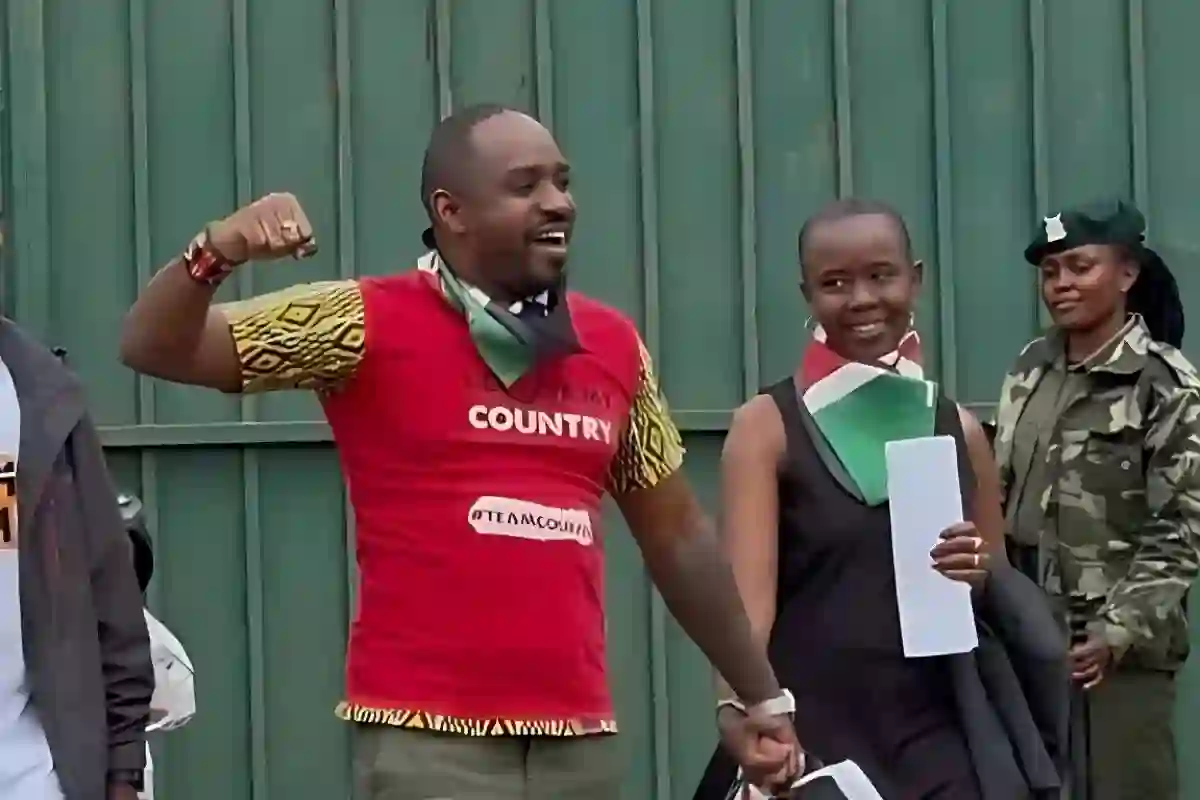In a surprising turn of events, Kenyan authorities have dropped terrorism charges against activist Boniface Mwangi after facing intense criticism both locally and internationally.
The decision comes just two days after Mwangi’s arrest at his home in Lukenya on 19 July 2025.
Original Terrorism Allegations Spark Backlash
Mwangi was initially accused by the Directorate of Criminal Investigations (DCI) of facilitating terrorist acts related to protests that rocked the country on 25 June 2025.
However, these allegations were met with swift condemnation from human rights groups who argued that the charges were politically motivated and lacked any solid legal foundation.
Mwangi himself vehemently denied the accusations, making it clear to the public, “I am not a terrorist.”
New Charges: Ammunition and Tear Gas Possession
Although the terrorism charges were dropped, Mwangi now faces two fresh allegations: possession of blank ammunition and unauthorized possession of noxious substances.
Authorities claim that during a search at Nairobi’s Mageuzi Hub on the day of his arrest, police found one round of 7.62 mm blank ammunition and three teargas canisters.
The activist pleaded not guilty to these charges and was subsequently released on a bond of KSh 1 million (roughly R140,000 to R150,000).
Mwangi’s lawyer, Njanja Maina, has challenged the credibility of the evidence, suggesting that it may have been fabricated or unlawfully obtained.
Rights Groups Warn of Widening Crackdown on Youth Dissent
A coalition of 37 rights organizations, including the Police Reforms Working Group (PRWG), condemned the government’s aggressive use of anti-terrorism laws against protesters and activists.
They view Mwangi’s arrest as part of a broader campaign to silence young voices demanding change.
Former Chief Justice David Maraga criticized the government for allegedly using the judiciary as a tool to suppress critics, while Siaya Governor James Orengo called the charges “ridiculous” and lacking any legal merit.
The involvement of the Anti-Terrorism Police Unit in arrests related to protests has raised serious concerns among legal experts and the public alike.
Background: Protests, Police Violence, and Calls for Justice
Mwangi’s arrest occurred in the wake of violent protests against President William Ruto’s government that erupted on 25 June 2025.
Protesters were demanding answers about ongoing police brutality and the worsening economic conditions facing many Kenyans.
Since the protests began in 2024, rights groups report that more than 100 people have lost their lives.
Mwangi is no stranger to government crackdowns, having been arrested multiple times in both Kenya and Tanzania for his activism.
Notably, he has a case pending at the East African Court of Justice alleging torture by Tanzanian police in May 2025.
The Bigger Question: Should Kenya Reform Anti-Terror Laws Targeting Activists?
This case raises serious questions about how anti-terrorism laws are being applied in Kenya, particularly in relation to activists and protesters.
Is the government overreaching in its efforts to maintain order, or is this a necessary step to ensure security?
